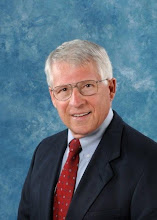I spent most of last week in DC. Some of my time was consumed in trying to determine how the concept of resilience is progressing at the national level. There are lots of indicators that meaningful conversations are occurring and that resilience is taking root as a more comprehensive way to organize the nation’s thoughts on natural and man-made disasters. For instance, the National Security Council has an office of National Resilience Policy. Significant thought on national resilience seems to have gone into the Quadrennial Homeland Security Review and it may emerge as one of the goals of the Department of Homeland Security. Virtually every federal department and many federal agencies have included the word resilience in their solicitations for studies or in their seminars, industry events, workshops and conferences.
While all of this is positive, I sense a void – a wide disparity in what is meant by resilience. We lack a thought leader or perhaps a number of thought leaders for national resilience. CARRI has spent the last two years working hard to figure out what resilience means in America’s communities and we think we have made significant progress. But if resilient communities can help build a resilient nation, someone needs to begin to organize resilience thought from a national perspective. And while studies in this area will be extremely helpful, we can’t wait a couple of years to determine a pathway.
CARRI will continue to do what we have been doing – trying to sort through the extremely complex issues of resilience in the nation’s communities. We are ready to help at the national level by convening and mobilizing the community effort and working to link it to national thought and national policy. It is interesting that foreign policy can claim a number of thought leaders in academia and in think tanks but domestic policy has very few and resilience has, as yet, no champion. CARRI is looking for partners at the national level.
Subscribe to:
Post Comments (Atom)

No comments:
Post a Comment